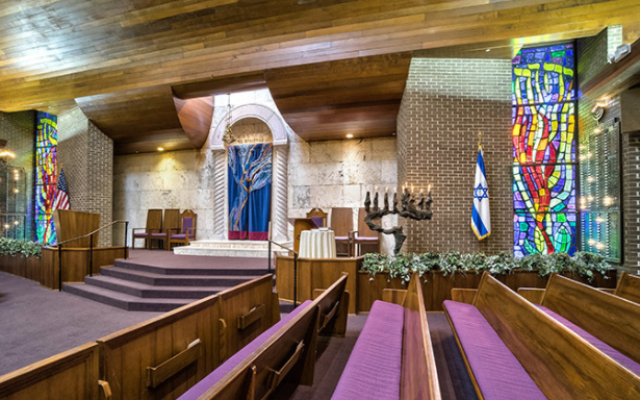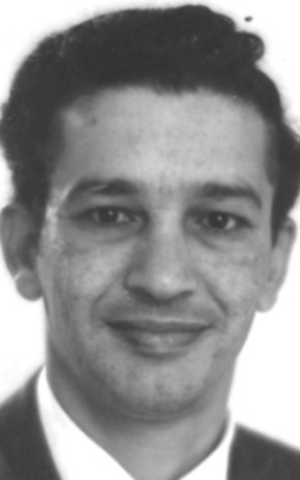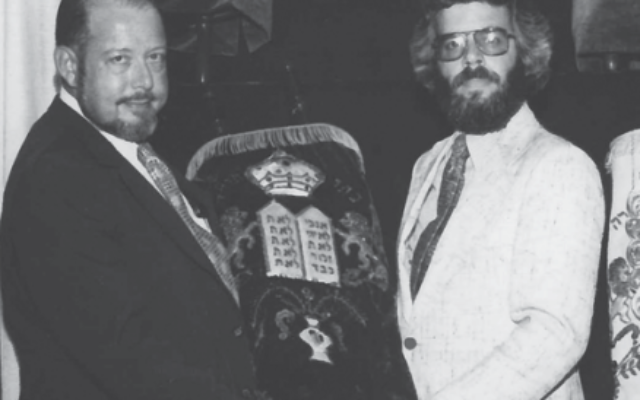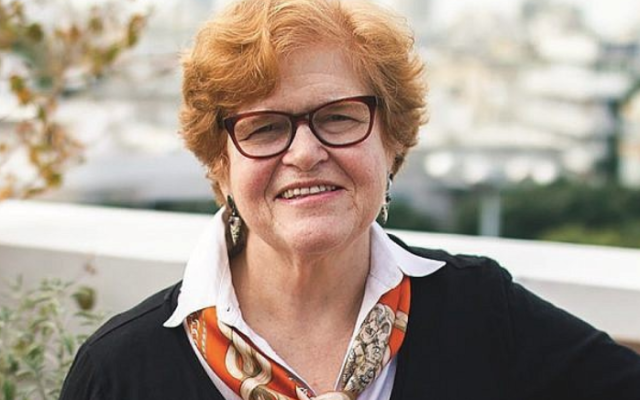The Synagogue Boards at the Center of Atlanta History
Leaders of three Atlanta synagogues faced down numerous challenges over the last 50 years.

Just two-and-a-half years ago, in the first months of 2019, the president of what was then called Young Israel of Toco Hills was faced with the question of whether to continue the congregation’s affiliation with the National Young Israel movement. The congregation had grown increasingly dissatisfied with some of the restrictions and some of the actions of the national leadership, and there was talk of divorce.
Untangling the congregation from its long affiliation with Young Israel was not just a test for the rabbinic leadership, but also for the board and its president. The relationship with the national organization struck at the heart of the religious community’s financial foundation.
Since the synagogue functioned under the national umbrella of the national organization’s 501(c)3, there was concern that the increasingly political partisanship of the National Young Israel Council could run afoul of the IRS. In 2019, ahead of the presidential election, issues at the national level could spell trouble in Toco Hills.
Marc Sokol, an IT consultant and the congregation’s president at the time, said the board thought it was a good time to consider whether it might be time to leave.

“There was just a lot of noise, like on Facebook and on Twitter, that made us feel like if we’re going to do something, we probably should do it soon. We felt that the Young Israel organization should really be functioning in an apolitical manner, you know, neutral, if you will, or if they were going to delve into politics, at least be nonpartisan. And when we looked at what was going on with the National Council at the time, we couldn’t say that that was the case.”
Sokol did what he could to lower the volume at the national level, particularly after at least one leader pointedly insulted the congregation’s longtime rabbi, Adam Starr. And he cautioned others to refrain from public comment, even after well-known Emory professor Deborah Lipstadt quit the congregation in protest over the national organization’s political maneuvering.
Despite being in the national spotlight — and with tempers rising — Sokol believed the discussion should be an orderly process, even though it might get heated at times.
“It wasn’t like an arbitrary decision that just the president or the rabbi made. We set up an independent committee, one half would come up with the reasons why we should disaffiliate and the other half framed the reasons why we should stay. Then we had a full membership meeting,” he said.
The difficulty of creating consensus at a time of change is not a recent phenomenon in Atlanta. It can be traced back to the founding of the first synagogue here, the Hebrew Benevolent Congregation — known today as The Temple — in 1867. Those first Jewish families had trouble deciding in which direction to go as factional disputes roiled the early Reform movement.
A century later, in the late 1960s, the city’s only Sephardic congregation, Or VeShalom, was also locked in a contentious struggle — over the location of a new synagogue building, the first to be built since the congregation was founded in 1914.
One faction was strongly in favor of a site on Northside Drive in northwest Atlanta, another favored a location on North Druid Hills Road in northeast Atlanta, closer to Buford Highway, which was nicknamed Jewford Highway after all the singles and young families filling up the new apartment buildings there.

The location was, they argued, closer to the Morningside and Virginia-Highland neighborhoods, and nearer to the Grady High School area across from Piedmont Park where many of the older members lived.
Grace Benator had been the president of the sisterhood in the ’60s, when her husband Asher — who died in 2013 — was vice president of Or VeShalom, soon to become president. The congregation went back and forth, according to Benator.
“One prominent doctor said most of our people live around the Morningside neighborhood and in Virginia-Highlands, where the old synagogue was, and why would we want to go so far away. Another important family lived in northwest Atlanta, and they were big givers, but those living closer to North Druid Hills were a larger group and convinced everyone at another meeting that we should be on this nice piece of property we had found there near Buford Highway.”
Long before the age of sophisticated fundraising consultants creating a high-tech building fund campaign, Asher and a committee of volunteers appealed directly to members of the congregation.
“They would go from house to house,” Grace Benator said. “They had a list and what they thought each family could give, and they would go around to collect money for the synagogue. They told people we would like for you to give this amount and here’s the pledge. And some said yes. Some said, ‘no, I can’t afford it,’ but they got enough to build it. Before it opened in 1971, to save money, everyone came in with mops and brooms and buckets and did a complete clean-up in time for the High Holy Days.”
One of the architects of the new building was Warren Epstein, who, in 1968, with his wife, Jan, had helped to organize a new Reform congregation some distance north of the location that Or VeShalom had turned down in northwest Atlanta.
The new synagogue, Temple Sinai, chose as its first rabbi Richard Lehrman, who had been the assistant rabbi at The Temple. But, as Jan Epstein was taking over as president in 1977, Rabbi Lehrman was seriously ill in the hospital. Under the rules of the national Reform movement, the congregation couldn’t even begin to talk about a successor.
Two years later, after the High Holy Days, Rabbi Lehrman died. Epstein was among those grieving for the young, beloved rabbi who was gone too soon.
“He was in a wheelchair just before he passed away, and it was a very difficult time for the congregation, because they could not handle his being in a wheelchair. After he died, the congregation went through a very tough emotional time. I reached out to a lot of rabbis in this community. And anybody and everybody I asked — or we asked — for assistance during this critical time said yes. But it was rough.”

Six months later, the Temple Sinai board led by Epstein engaged Rabbi Philip Kranz, who came from a temple in Chicago. He was succeeded in 1996 by Rabbi Ron Segal, who was the associate rabbi.
After her tenure as president, Epstein served for decades on the national board of the Union for Reform Judaism and traveled around the country leading trainings for synagogue leaders.
Grace Benator is still active in Or VeShalom, the synagogue she grew up in, and has been a member of, since 1956. Every Tuesday, she volunteers with other women at the synagogue to make burekas, the Sephardic pastry often sold during Chanukah to raise money for the synagogue.
But times are changing. Last year, for the first time in its 107-year history, the congregation welcomed a rabbi who had not grown up in a Sephardic family.
Young Israel of Toco Hills voted to leave the Young Israel movement and is today affiliated with the Orthodox Union. Deborah Lipstadt resumed her membership and has been appointed special envoy by the Biden administration, tasked with monitoring and combatting anti-Semitism.
Marc Sokol is still on the board of the synagogue, since renamed Congregation Ohr HaTorah, whose membership is growing, despite the pandemic. He’s grateful, he says, for the opportunity to have helped his synagogue navigate a turbulent and trying time.
“I think personally, it was a great experience. I learned a lot about myself. Overall, for the synagogue, it was good. I think, to sit back and do nothing at the time, would have created a schism or a conflict within the shul. We had to do what we needed to do to avoid it.”
- Then & Now
- Local
- Bob Bahr
- The Temple
- Biden administration
- Marc Sokol
- Deborah Lipstadt
- rabbi adam starr
- Young Israel of Toco Hill
- Congregation Ohr HaTorah
- Asher Benator
- Grace Benator
- Rabbi Richard Lehrman
- Jan Epstein
- Warren Epstein
- Congregation Or Ve Shalom
- Temple Sinai
- Rabbi Ron Segal
- Rabbi Phillip Krantz
- North Druid Hills Road
- National Young Israel
- congregation
- IRS
- Hebrew Benevolent Congregation
- Sephardic congregation
- Atlanta
- Buford Highway
- Jewford Highway
- Grady High School
- piedmont park
- High Holy Days
- Union for Reform Judaism
- Chanukah
- burekas
- Orthodox Union
- Anti-Semitism
- pandemic
- Shul



comments